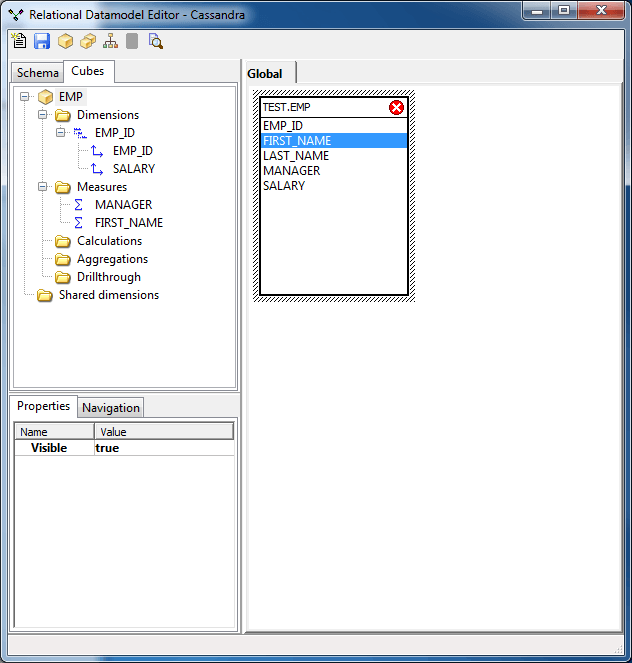

- Actual odbc driver for access how to#
- Actual odbc driver for access update#
- Actual odbc driver for access code#
MsgBox "This Package is already Collected by the Owner", vbInformation, "Package Management system"
Actual odbc driver for access code#
MsgBox "Please Type in the Customer Tracking Code and try again", vbCritical, "Package Management System"ĮlseIf Me.CustomerClaim_("Status") = "Package Collected" Then I have try to work around the problem, unfortunately couldn't get the right here is the code I try to build Now, when click the command to to change the vaslue of these two fields I got a message saying this record is not updatable! Me.CustomerClaim_("DateofCollection") = Date

Me.CustomerClaim_("Status") = "Package Collected" I used the following listed below to change the values of the two field Of course, some of the codes will not be compactable with the back-end database.
Actual odbc driver for access update#
I am having a problem update a record on a table after moving the data to SQL Server. Thursday, Janu11:30:36 AM - Matthew Ikechukwu Hi Matthew, does the SQL Server table have a primary key? Thursday, Janu11:37:15 AM - Greg Robidoux I have two queries to create coming from a form thats part of the query preview and the second preview uses two tables also coming from a form. I guess its not looking at the SQL Server table? I must have missed a step. When the pass thru is created and based on the instructions 'changing from dbo_ to dbo.' the pass thru query cannot find the dbo.Client when trying to preview client info. The data in SQL dbo.Client and when looking at the table while processing it's dbo_Client. 'Pass Through Queries' I'm starting with the access frontend and accessing the backend 'data' in SQL Server 2008 R2. I have reviewed an exercised 'created' the suggesction on your site. Mr Ford, thank you in advance for assistance. How do I get it to use the same info the rest of the application is using and stop asking for login info? I am using the linked tables, however if I add a new table in SQL and link it to the access application, everytime I try to access that new table access asks for the login info for SQL again. I wanna change APP=Microsoft Office 2010 to 2007, is this doable ? Data is present in the table when viewed in SSMS.
Actual odbc driver for access how to#
Using a Pass Through-query gives similar results.Įxamening above table with SQL Server Management Studio: < 1 sec.Īny suggestios on how to solve this problem please?įollowed steps to link to SQL12 database, selected tables are visible in access13 but all fields are filled with #Deleted. The biggest table (till now): 205 rows, 44 columns.ĭubble click on tablelink gives a first response after 32 sec. Tables are linked (ODBC, SQL Server Native Client 11.0) SQL server express 2014 as backend for a ms Access 2010 frontend.īoth SQL Server and Access installed on the same machine. Tuesday, Novem10:43:38 AM - Dik van der Zwan I want a soltion for connection establish in module of Microsoft Access 2010 for MS SQL Please whats the best way to do this change? Also all the queries The tables are similar but the Linked tables in Access has the schema name preceding it which isn't the same schema name on SQL server. Now we have a need to reconfigure those Linked tables to connect to a SQL Server. Please we have a situation where some linked ODBC tables in Ms access where created from a different DB. Now, the string works very but after I link the table to SQL 2014 Express, the code did not work Please, can you have me take a look at the code and tell me where I missed it.

The information is displayed on a calendar box of the date. If use it to strip 5 letters of a doctor and the time the doctor has an appointment with a patient. This SQL String Listed above works perfect on Access 2016. & "WHERE (((tblAppointments.AppointDate)>=Date())) " & "FROM tblSchedule INNER JOIN tblAppointments ON tblSchedule.DoctorsID = tblAppointments.DoctorsID " _ StrQuery = "SELECT tblAppointments.AppID, tblAppointments.AppointDate, tblAppointments.AppointTime, Left(.,5) AS Doctor, tblSchedule.DoctorsName" _


 0 kommentar(er)
0 kommentar(er)
